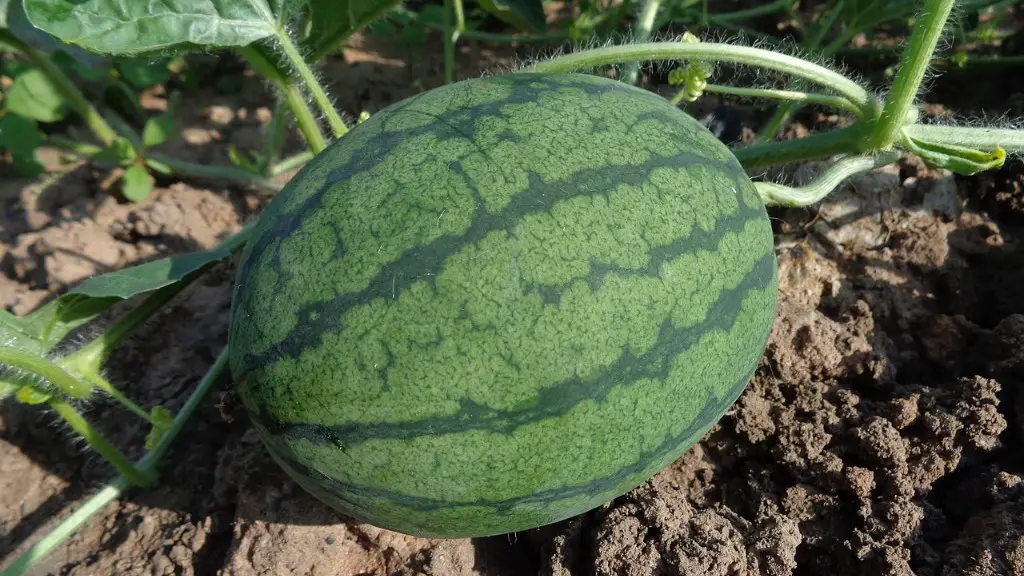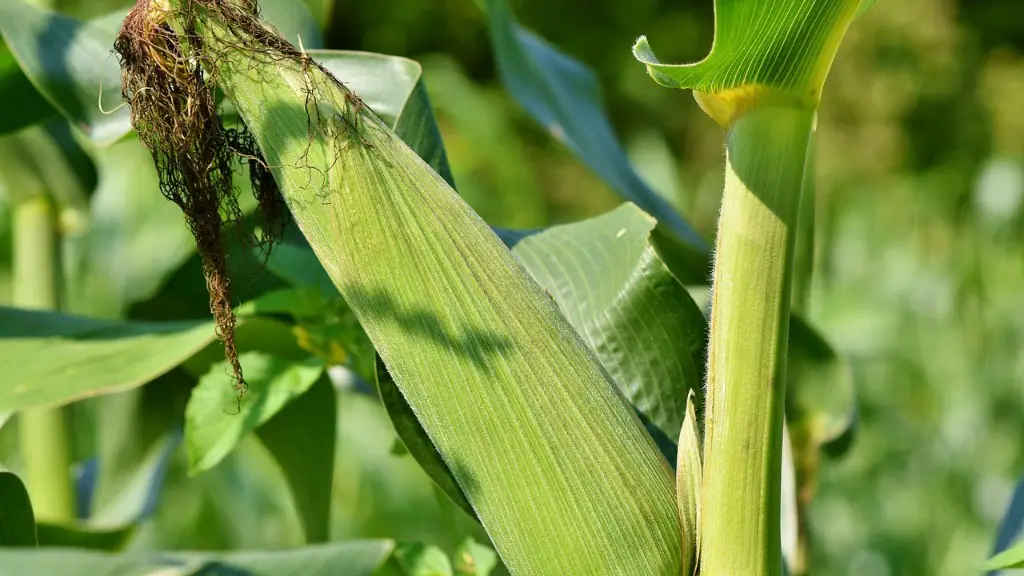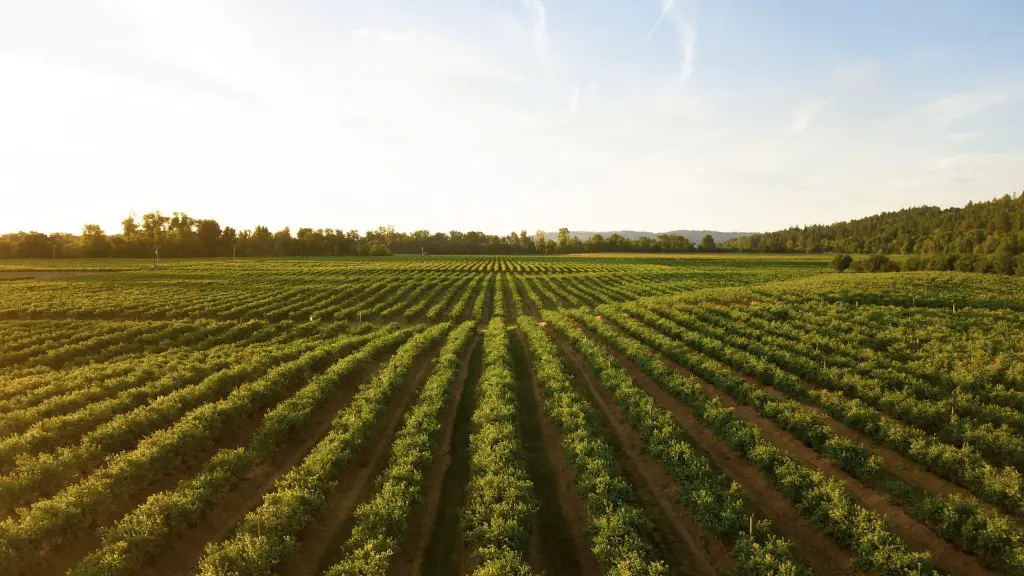The importance of irrigation in agriculture is universal. The success or yield of any agricultural land depends on the right mix of temperature, sunlight, and moisture. Farmers rely on irrigation systems to provide their crops with the optimal level of moisture, at the right time.
Irrigation also helps to protect crops during periods of drought, and can assist in the flushing of salt from the root zone, preventing crop damage.
Overall, irrigation is essential for the health and productivity of agricultural land, and by extension, for the global food supply.
The importance of irrigation in agriculture is vast. Without irrigation, farmers would be limited to growing crops during the brief periods of time when rain is available. Irrigation allows farmers to water their crops during dry periods, which lengthens the growing season and increases crop yields. Furthermore, irrigation can help prevent damage to crops during periods of extreme heat or cold.
What is irrigation What is its importance?
Irrigation is a vital process in agricultural and land management, as it allows farmers to maintain crop growth during periods of low rainfall. By artificially supplying water to the land at regular intervals, farmers can ensure that their crops do not suffer from drought conditions. In addition, irrigation can also help to keep the landscape healthy and green during periods of dry weather.
The main goal for irrigation is to provide plants with the proper amount of water at the best time. Adequate soil water will influence the entire growth process from seedbed preparation, germination, root growth, nutrient utilization, plant growth and regrowth, yield, and quality.
What are the benefits of irrigation
Irrigation is one of the most important tools in agriculture. It allows farmers to grow more crops and pastures, have more flexibility in their operations, and produce higher quality crops. Irrigation also lengthens the growing season, or allows farmers to start the season at an earlier time.
Irrigation is a process of applying controlled amounts of water to plants at needed intervals. Irrigation helps to grow agricultural crops, maintain landscapes, and revegetate disturbed soils in dry areas and during periods of less than average rainfall. Irrigation also has other uses in crop production, including frost protection, suppressing weed growth in grain fields and preventing soil consolidation.
What are three reasons for irrigation?
It is essential to provide irrigation for crops during the rest of the eight months as the monsoons are uncertain. Irrigation is necessary to protect crops from drought as a result of uncertain rainfall. It does not rain equally in all parts of the country.
Irrigation has many advantages. It improves the groundwater storage as water lost due to seepage adds to the groundwater storage. It improves the yields of crops, which means more income for the farmer. We also use it to help the growth of crops during the period of not enough rainfall.
How does irrigation improve farming?
It is important to note that irrigated agriculture is, on average, at least twice as productive per unit of land as rainfed agriculture. This increase in productivity can be attributed to a number of factors, including the fact that irrigation allows for more consistent watering of crops, which can lead to increased yields. In addition, irrigation can allow for more intensive and diversified cropping patterns, which can further increase yields. Given the significant increases in productivity that can be achieved through irrigation, it is clear that this practice can play a key role in improving agricultural productivity and food security.
Irrigation affects agricultural production in a number of ways. First, it allows farmers to grow crops on land that would otherwise be too dry to support agriculture. This can open up new areas for agriculture, which can lead to a more even distribution of production. Second, irrigation can allow farmers to grow crops more intensively, which can lead to higher yields. Finally, irrigation can also allow farmers to grow alternative crops, which can provide a more diverse range of agricultural products.
What are the impacts of irrigation in agricultural production
Irrigation systems provide a way to transport and distribute water to crops in order to help them grow. Farmers have long used irrigation to increase crop production, and it remains an important practice today. In addition to its role in increasing yields, irrigation can also help to reduce variability in production by improving control of the crop environment.
While irrigation has a number of advantages, there are also potential disadvantages that should be considered. One of the risks associated with irrigation is waterborne illness, as overflow can lead to contaminated water sources. Additionally, drainage issues may crop up during the rainy season, and loss of property and habitation are possible if care is not taken.
What are the benefits and consequences of irrigation?
Drip irrigation is an irrigation method that uses multiple emitters to slowly deliver water to plants. The main advantage of drip irrigation is that it reduces water usage by minimizing evaporation. Additionally, nutrient losses from leaching are reduced, and maintenance is required to keep the system going. However, drip irrigation cannot be used with high iron content water because emitters become clogged. Additionally, chewing on tubing from insects and rodents can cause water leaks.
There are many benefits to irrigating crops, including more stable and reliable yields, reduced crop insurance costs, and greater assurance in meeting production targets and marketing contracts. In addition, irrigation fosters diversity in farm production, which can lead to more resilient farming operations.
Who benefited the most from irrigation
Agriculturalists and those who lived in early civilizations near rivers benefitted the most from irrigation because it allowed them to cultivate larger areas of land and have a more reliable food supply.
Irrigation systems are beneficial for many reasons. One of the most impactful reasons is that they help to prevent soil erosion. By providing the earth with the optimal moisture level, irrigation systems help to keep the soil in place. This is especially beneficial on private and commercial farms where agricultural diversity is key. In addition, irrigation systems also allow you to plant more flowers, trees, and shrubs around your home. By preventing soil erosion, these systems help to create a more beautiful and diverse landscape.
What are 3 types of irrigation used on farms?
Irrigation systems are used to provide water to crops and plants. There are many different types of irrigation systems, each with its own advantages and disadvantages. The four main types of irrigation systems are flood, sprinkler, drip, and micro irrigation.
Flood irrigation is the oldest and most common type of irrigation. It involves flooding the field with water and letting it drain away. This method is simple and cheap, but it is also the most inefficient.
Sprinkler irrigation is more efficient than flood irrigation, but it is also more expensive. It involves using a pump to spray water onto the field.
Drip irrigation is the most efficient type of irrigation. It involves using a system of pipes and emitters to drip water onto the roots of plants. This method is more expensive than sprinkler irrigation, but it uses less water.
Micro irrigation is a type of drip irrigation that uses very small emitters. This method is the most expensive, but it is also the most efficient.
There are three types of surface irrigation systems: basin, border, and furrow. The basin system consists of level, diked areas that receive undirected flow of water. Border systems have water flowing in a channel next to the field, and furrow systems have water flowing in channels in the field.
Warp Up
Irrigation is critical to agriculture because it is used to supply water to crops during periods of drought. It can also be used to prevent crops from being damaged by too much heat or cold. Additionally, irrigation can help improve the quality of crops by providing a consistent supply of water.
Without irrigation, farming would be limited to regions where rainfall is adequate. Irrigation allows farmers to grow crops in drier areas by supplementing the water that they receive from rain. In addition to expanding the areas where crops can be grown, irrigation also helps to increase crop yields.






I am grateful that you talked about the benefits of irrigation in agriculture. You mentioned that farmers can extend the growing season and boost agricultural production by using irrigation to moisten their crops during dry spells. I’ll make sure my uncle knows about this because he recently started farming and it can be very important during droughts. If agricultural irrigation services come along that can aid him in the future, I’ll definitely check them out.